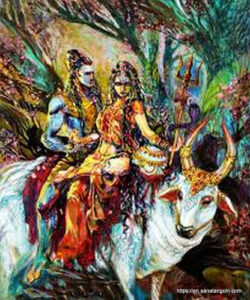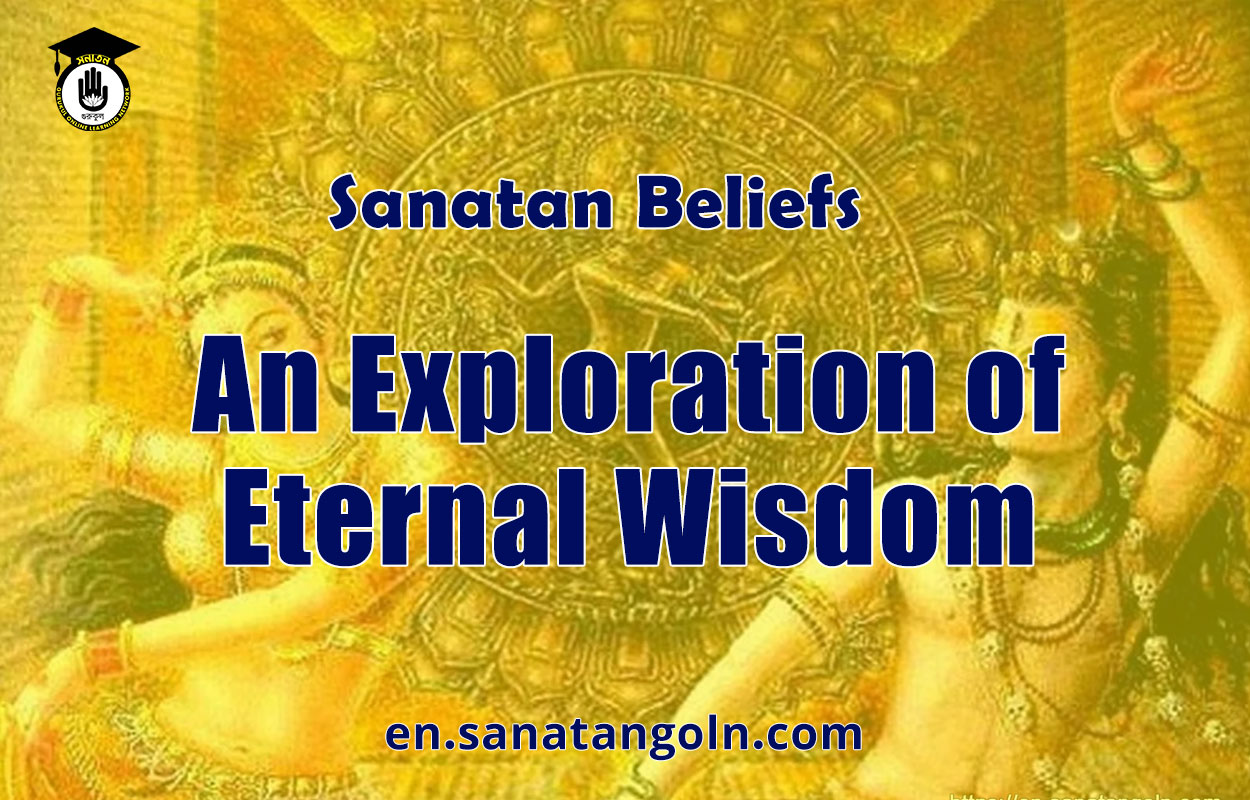Sanatan Beliefs: An Exploration of Eternal Wisdom. Sanatan Dharma, often referred to as Hinduism, is one of the world’s oldest living religions. The term “Sanatan” means eternal, and “Dharma” signifies duty, righteousness, and moral law. Together, Sanatan Dharma embodies the timeless and universal principles that govern the cosmos and human existence. This article delves into the core beliefs of Sanatan Dharma, exploring its philosophical foundations, spiritual practices, and ethical principles.
Sanatan Beliefs: An Exploration of Eternal Wisdom
Core Philosophical Foundations
1. Brahman: The Ultimate Reality
– At the heart of Sanatan Dharma lies the concept of Brahman, the ultimate, unchanging reality amidst and beyond the world. Brahman is infinite, formless, and the source of all that exists. It is both immanent (present within the universe) and transcendent (beyond all physical existence).
2. Atman: The Individual Soul
– Every living being possesses an Atman, or soul, which is considered a part of Brahman. The Atman is eternal and indestructible, transcending physical death and the cycles of birth and rebirth (samsara). The realization of one’s Atman as non-different from Brahman is the ultimate goal of spiritual practice in Sanatan Dharma.
3. Samsara and Moksha
– The cycle of birth, death, and rebirth, known as samsara, is a fundamental belief in Sanatan Dharma. This cycle is driven by karma, the law of cause and effect. Liberation from samsara, known as moksha, is achieved through self-realization and enlightenment, leading to union with Brahman and the cessation of all suffering.
4. Karma: The Law of Action
– Karma refers to the actions performed by individuals and their subsequent reactions. Good actions lead to positive outcomes, while negative actions result in suffering. This law of moral causation emphasizes personal responsibility and ethical living, influencing one’s current and future lives.

Spiritual Practices
1. Yoga: Union and Discipline
– Yoga, meaning union, encompasses a wide range of practices aimed at achieving spiritual realization and self-discipline. There are various paths of yoga, including:
– Bhakti Yoga: The path of devotion and love for a personal deity.
– Jnana Yoga: The path of knowledge and wisdom, seeking the truth about Brahman and Atman.
– Karma Yoga: The path of selfless action and service without attachment to outcomes.
– Raja Yoga: The path of meditation and mental control, often associated with Patanjali’s Yoga Sutras.
2. Meditation and Mantras
– Meditation is a crucial practice in Sanatan Dharma, aimed at calming the mind and attaining higher states of consciousness. Mantras, sacred sounds or phrases, are often used in meditation to focus the mind and invoke spiritual energies. The “Om” mantra is considered the primordial sound and a representation of Brahman.
3. Puja: Worship and Rituals
– Puja is the act of worship, involving rituals and offerings to deities. It can be performed at home or in temples and is a means of expressing devotion and gratitude. Puja rituals may include lighting lamps, offering flowers, and reciting prayers and hymns.
4. Pilgrimage: Tirtha Yatra
– Pilgrimage to sacred sites, known as tirtha yatra, is a common practice in Sanatan Dharma. These journeys are believed to purify the soul and accumulate positive karma. Prominent pilgrimage sites include Varanasi, Rameshwaram, and the Char Dham (Badrinath, Dwarka, Puri, and Rameshwaram).

Ethical Principles
1. Dharma: Righteousness and Duty
– Dharma represents the ethical and moral principles that govern individual conduct and societal order. It encompasses duties, rights, laws, and virtues that sustain harmony and justice. Adhering to one’s dharma ensures balance and righteousness in life.
2. Ahimsa: Non-Violence
– Ahimsa, or non-violence, is a fundamental ethical principle in Sanatan Dharma. It advocates for the avoidance of harm to all living beings through thought, word, and action. Ahimsa extends to vegetarianism and compassion towards animals.
3. Satya: Truthfulness
– Satya, or truthfulness, is the adherence to truth in thought, speech, and action. It is considered a vital virtue for spiritual growth and ethical living.
4. Asteya: Non-Stealing
– Asteya, or non-stealing, involves respecting others’ possessions and not taking anything that does not belong to oneself. This principle promotes honesty and integrity.
5. Brahmacharya: Celibacy and Self-Control
– Brahmacharya, traditionally associated with celibacy, also signifies self-control and moderation in all aspects of life. It encourages the conservation of energy and focus on spiritual goals.
6. Aparigraha: Non-Possessiveness
– Aparigraha, or non-possessiveness, advises against excessive attachment to material possessions and desires. It promotes simplicity, contentment, and the sharing of resources.
Inclusiveness and Diversity
Sanatan Dharma is notable for its inclusiveness and diversity. It embraces a wide range of beliefs, practices, and deities, allowing for multiple paths to spiritual realization. The religion’s tolerance for different viewpoints and its adaptability have contributed to its longevity and relevance in modern times.

Sanatan Dharma’s beliefs offer profound insights into the nature of existence, the self, and the universe. Its emphasis on self-realization, ethical living, and spiritual practices provides a comprehensive framework for leading a balanced and meaningful life. By understanding and embracing these timeless principles, individuals can cultivate inner peace, wisdom, and a deeper connection with the divine.
See more:
